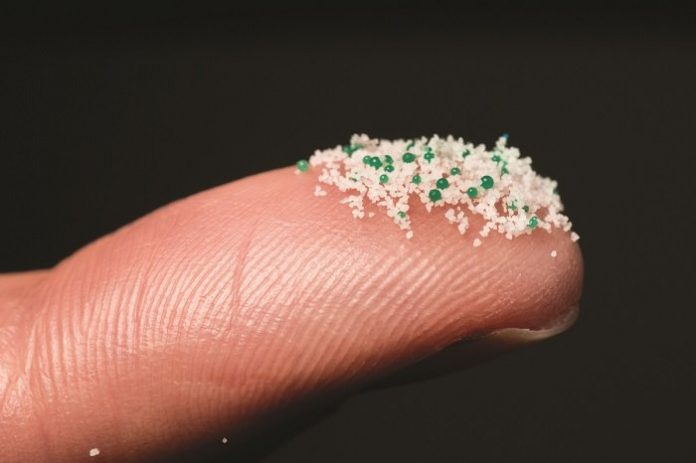
Although shocking, the topic of plastic microbeads used in cosmetics is not new. With the recent talk of plastic in the oceans and its entry to the marine and human food chain with the ingestion of plastic including that of microbeads ingested by fish, it has gained extraordinary importance. In addition, the public is not widely aware of the use of plastic microbeads in cosmetics and face creams, especially skin lighteners.
In July 2018, NATRUE announced reaching a milestone with over 6,000 natural and organic products worldwide now bearing the NATRUE seal – keeping the NATRUE standard at the forefront of the Natural and Organic Cosmetics (NOC) sector. Global NOC brand leaders and NATRUE founders Weleda, Dr Hauschka, Lavera, Primavera and Logocos were amongst the first to carry the NATRUE seal on their products; over the past decade these pioneers have been joined by many more new up-and-coming brands. As of June 2018, more than 6,000 NATRUE certified products are now available on the market, from approximatively 230 committed brands, with more in the pipeline!
Bio-On’s special bioplastic micro powders facility inaugurated

Products Council (PCPC), which
represents the cosmetics industry
worldwide, brought out a bizarre
press release stating that they take
their responsibility seriously and are
doing their utmost to tackle plastic
pollution in the oceans, pointing to
the voluntary phasing out of plastic
microbeads in scrub products.
However, the organization then went
on to protest against the United
Nations Clean Seas-campaign, which
is urging the cosmetics industry to
stop adding microplastics to their
products.
Bio-On inaugurated its bioplastic micro facility on 20 June 2018 at Castel San Pietro Terme near Bologna by testing all machines and software. With full production by autumn, the company will produce about 150 tons of micro powders in special PHAs bioplastic for the cosmetics industry in 2018. The current annual production capacity is 1000 tons. “Respecting the timeline is fundamental,” explains CEO Marco Astorri, “since the new European directive about the reduction of pollution caused by traditional plastic, which the European Parliament will vote in September, will open a huge market for biodegradable plastics.”
This is the first owned factory to produce special bioplastic PHAs, 100% natural and biodegradable, for advanced product niches with high added value such as microscopic beads (microbeads) for the cosmetics industry. The total investment for the production center and for the new research laboratories is EUR 20 million.
L’Oréal phases out plastic microbeads
Since 2013, L’Oréal’s R&I teams reformulated products, exploring many different alternative solutions, as one solution did not responding to the various types of exfoliations and textures that consumers expected from its products. Minerals like clays and perlite, powder of fruits kernels and some natural waxes, could be used either individually or in combinations.
When L’Oréal was first made aware of a possible issue concerning the environmental impact of plastic microbeads used as exfoliating agents in its rinsed off products, the company decided to gradually phase them out [see commitment from 2014]. L’Oréal has made significant progress since its commitment was published. By May of 2016, 80% reformulation has been completed and 100% of its rinsed off products were to be reformulated by the end of 2016.









